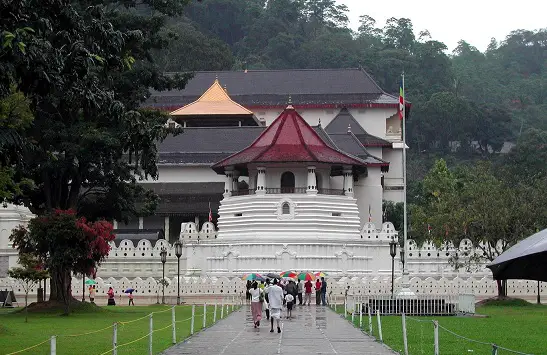The political and economic crisis in Sri Lanka is continuing to worsen. On Tuesday, the country’s acting President, Prie Minister Ranil Wickremesinghe declared an official state of emergency, following President Gotabaya Rajapaksa fleeing to the Maldives. Meanwhile protests began raging in the nation’s capital Colombo.
Atlantic Council GeoEconomics Director Josh Lipsky noted, the unrest and economic turmoil has led to fire-sales in the local markets, saying in an interview, “We have an extraordinary amount of money of distressed assets trading at a higher amount than we’ve had in years. And so that triggers a lot of alarm bells.”
Several factors combined to produce the current crisis, among them fiscal mismanagement through tax cuts and accrual of national debt, money printing, Chinese debt traps used to build unprofitable ports, the COVID pandemic crushing the vital tourism industry, depletion of national reserves to stay afloat, and finally a collapse of the agriculture industry brought about by the government instituting an arbitrary ban on the use of fertilizers, pesticides, and other “non-organic” farming techniques, which destroyed yields, crushed the industry, and drove record food inflation due to massively tightened supply.
Lipsky noted that the Central Bank of Sri Lanka had recorded an average yearly inflation rate of 18.4% in June of 2022, and that food inflation alone had surged 80.1% over the previous year. Some argue through the agricultural policy alone, Sri Lankan tipped the already precarious balance and destroyed their economy.
However Lipsky pointed out how in this global macroeconomic environment, Sri Lanka is not the only government heading into troubled waters. He adds, “You have to look at El Salvador, Ghana, Tunisia, Egypt, and even Pakistan, as a range of different kinds of EMs in different parts of the world that are potentially at risk of default here.”
He noted however, that any problem is manageable if you break it down into manageable pieces. But you also have to see them all as part of the whole.
“We know the lesson of recent history is that one crisis leads to another. We think of the global financial crisis, then the Eurozone crisis. Then look at the Arab Spring and political unrest. These things are connected, and so we can’t just disassociate. The economic and political repercussions are deeply intertwined,” he said.
One major factor was Russia’s invasion of Ukraine. Following that, oil and commodity prices became strained, as the OECD Economic Outlook for June 2022 showed a steep decline in Global GDP growth of 3%.
Lipsky added, “You have the high food prices, the high energy prices, the strong dollar, high interest rates in the U.S., the high debt burdens, highest debt burdens in EMs we’ve ever seen at this point. And in the back of it all, you have a creditor, China, that is not willing to renegotiate.”
According to the Harvard Business Review, China has lent over $1.5 trillion to 150 countries, making it the world’s most prolific creditor. It has primarily issued the loans to low and middle-income nations, and it has often been accused of using those loans to gain geopolitical influence over those countries, and then leveraging that influence to gain military or economic footholds in regions. As the Covid-19 pandemic took hold, it became even more difficult for those nations to pay back those loans, putting China in an even more powerful position relative to them.
According to the Stimson Center, many countries are now looking for debt relief from the Paris Club, a group of Western creditors who aid emerging markets with debt restructuring and refinancing. The problem lies in the fact the Paris Club does not count China as a member, and so these Chinese debts are unlikely to be handled flexibly with a gracious eye to the interests of the debtor.
Lipsky says to watch the upcoming G20 Leaders Summit in Indonesia, where he anticipates the G20 cornering China and confronting it over its lending practices with respect to emerging markets.
Lipsky said, “I’m putting Russia to the side at this meeting, but the other 18 are going to turn to China and say, ‘You have to play ball. It’s not good for anyone to have a wave of EM debt defaults. You have to renegotiate with these countries.”


